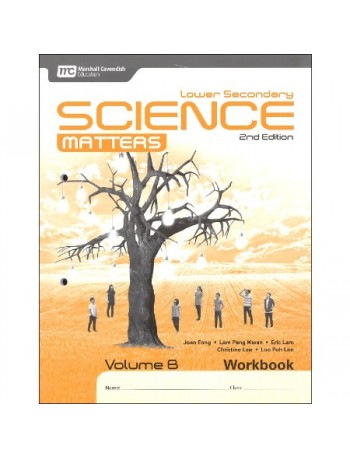
- Stock: In Stock
- Weight: 0.35kg
- ISBN: 9789810117399
Description
The Science Matters package is designed to meet the needs of learners of the 21st Century. It is written in line with the 2013 Lower Secondary Science syllabus from the Ministry of Education, Singapore. This package cultivates a sense of curiosity in students about the world around them.
Lower Secondary Science Textbook helps students discover scientific knowledge by using extensive real-life contexts. The use of purposeful visuals helps to enhance the students' learning experience. The book also provides visuals helps to enhance the students' learning experience. The books also provides many opportunities for students to develop scientific literacy through a strong foundation in Science.
Help students relate to scientific concepts - Each chapter starts with a real-life context from which concepts are developed. By providing many concrete examples, students learn more easily and appreciate Science to a deeper extent as they understand how concepts are applicable to their daily life. Context-based questions in the book also help students further apply what they have learnt to real-life situations.
Engages students through visuals - Infographics are employed to explain concepts without the monotony of running text. Information is communicated clearly and concisely in this manner. In addition, fascinating pictures are used to create excitement among students and make learning more enjoyable.
Communicates big ideas in Science - Links are provided so that students make connections between concepts learnt. Theme pages also outline the interconnectivity of concepts and questions are posed at the start of each theme to frame th ebig ideas of the chapters that follow.
Encourage critical thinking - Students are asked questions that require an extension of the concepts learnt. In addition, concepts are linked to their applications in society, and students are challenged to think about the concepts at a broader level and to understand the ethical issues surrounding science and technology.
